

The word infrastructure usually conjures up images of roads, highways, bridges and mass transit. One thing that Kate Ascher taught me is that the really interesting stuff is what you don’t see. The idea for her captivating book, The Works, came while observing the aftermath of the World Trade Center attacks. All of a sudden the mechanisms that made New York work were exposed to the surface: steam pipes, sewage systems, telecommunication cables, stormwater management and more. The more she dug, the more interesting it got. Mail used to be sent in underground pneumatic tubes! Do those crosswalk buttons work? Answer: only 25% of the time!
Today’s post is about prisons, something that the average city dweller doesn’t think about. But what is fascinating is that many of New York’s prisons are right in our midst—we walk and drive by them without noticing. Prisons used to be organized along district lines, particularly before the 1898 consolidation of the five boroughs. They were attached to or near the courts and were little more than holding cells. These included the famous Tombs (still in use), the Jefferson Market Prison in the West Village (now the landmarked Jefferson Market Library), the Essex Market Prison in the East Village, the Yorkville Prison at 57th and Lexington, the West Side Prison at 53rd and 8th Avenue, the Fordham Prison and the Harlem Prison.
Today, there are 13 prisons in New York City. Find a prison near you!
Manhattan
1. The Tombs
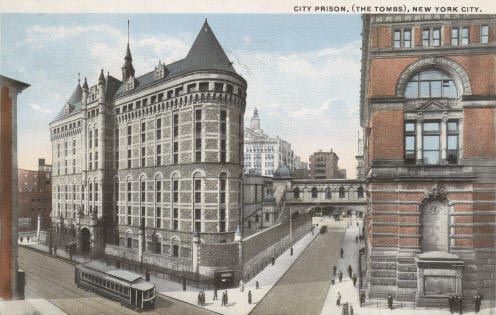
Image in public domain via Wikimedia Commons
The granite structure of The Tombs shown above was the second to sit on its site built in 1902. The complex was also known as the New York Halls of Justice and House of Detention. The granite was reused from Bridewell Prison next to City Hall. In 1941, the prison was replaced by a 15-story tower across the street, now known as the Manhattan Detention Complex.
A New York-based lawyer describes The Tombs, in its current state, to Untapped Cities “Deep underground, with stale air and bright florescent lights, the cells in the Tombs are dreary, suffocating and sleepless places. During the approximately 24 hours that the accused are held there, they can expect a gross sandwich, shared bathroom with no stall, and 30 cellmates ranging from the dangerous to the innocent in various states of despair.”
2. Metropolitan Correctional Center (MCC) 150 Park Row
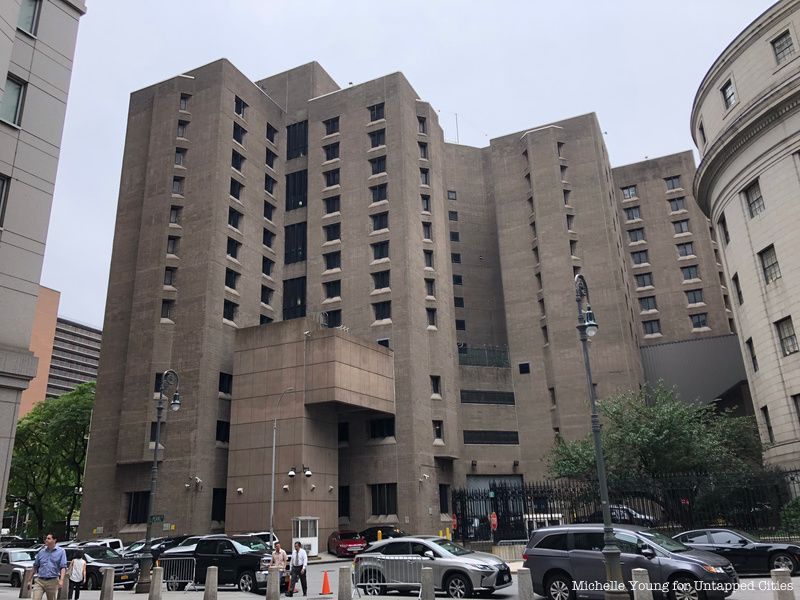
Federal prison, housing those appearing before the US District Court for the Southern District of New York. Famous inmates: Bernie Madoff, John Gotti and Sheikh Omar Abdel-Rahman, who has declared that the United States will “certainly kill me in” jail.
3. Lincoln Correctional Facility 31 W 110th Street
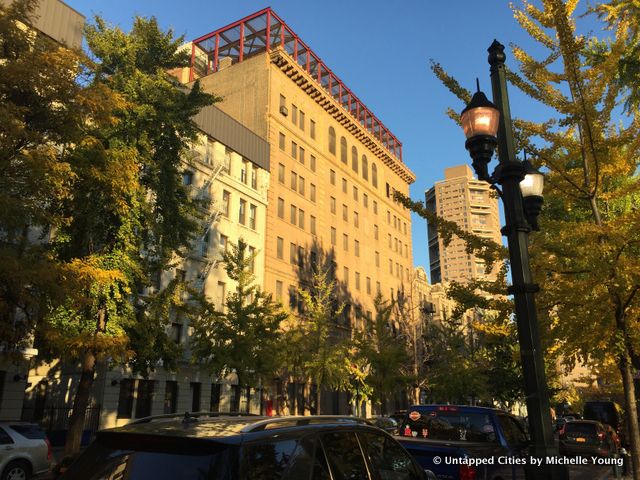
The Lincoln Correctional Facility is a state prison, blending in perfectly on 110th Street on the border of Central Park. The only signs differentiating it from a pre-war apartment building are the blocked windows. This prison has housed Malcolm X’s killer Thomas Hagan and was formerly the headquarters of the Young Women’s Hebrew Association. It has also served as a Army Housing and a school.
4. Bellevue Hospital Prison Ward (BHPW) 462 1st Avenue at 26th Street

This City prison houses males requiring psychiatric or medical treatment. Bellevue Hospital itself has a fascinating history, founded originally as a quarantine hospital and most recently had the distinction of treating the first patient with Ebola in New York City.
5. Edgecombe Correctional Facility 611 Edgecombe Avenue, Harlem
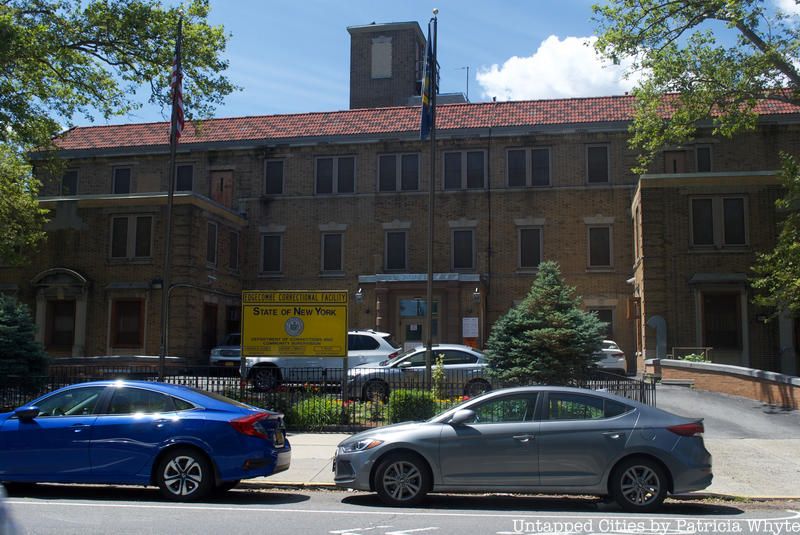
The Edgecombe Correctional Facility is a state minimum-security treatment facility and prison for men.
Brooklyn
6. Brooklyn Detention Complex (BKDC) 275 Atlantic Avenue
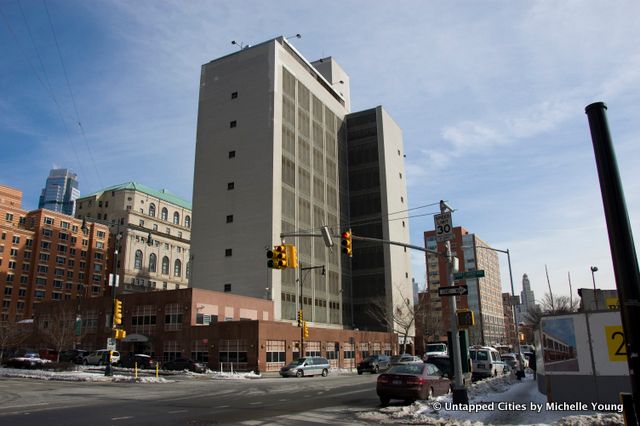
City prison, nestled between a police building and a shopping center. In the end of a political power struggle, soon to be ex-city comptroller Bill Thompson finally approved a $34 million renovation/expansion plan for the prison, supposedly cutting a deal with City Hall to drop a lawsuit against him in return for his cooperation.
7. Metropolitan Detention Center 100 29th St. Sunset Park
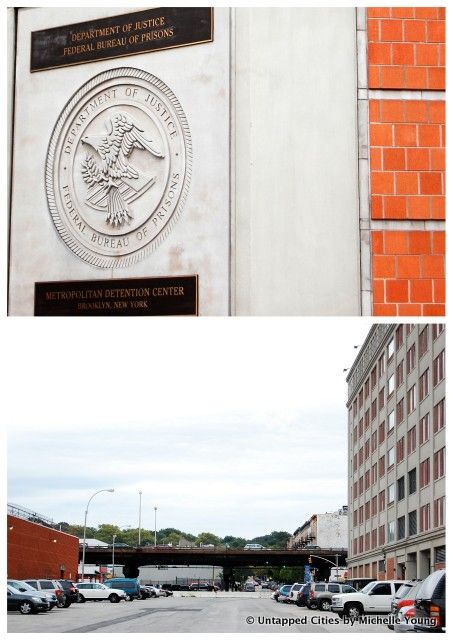
Metropolitan Detention Center just off the Gowanus Expressway
Federal Bureau of Prisons with a nice view of the waterfront and the Statue of Liberty. Someone from a local Sunset Park community organization has cited that despite initial protesting over the prison location in their neighborhood, some residents are finding it very convenient to visit their incarcerated relatives.
Queens
8. Rikers Island
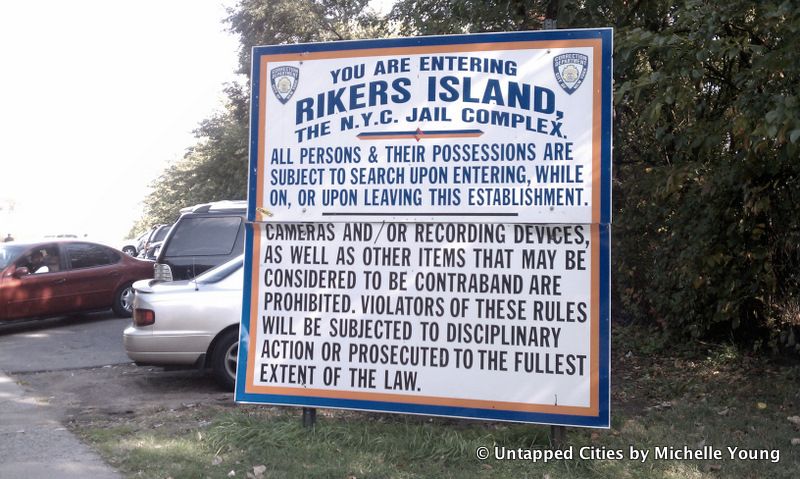
New York City’s main jail complex, in the East River between Queens and the Bronx. It technically belongs to the borough of the Bronx, but is part of Queens Community Board 1 and has a Queens zip code. Comprised of 10 jails, its total capacity is nearly 17,000. In 2010, Untapped Cities got access inside Rikers Island.
9. Queensborough Correctional Facility 4704 Van Dam St., Long Island City
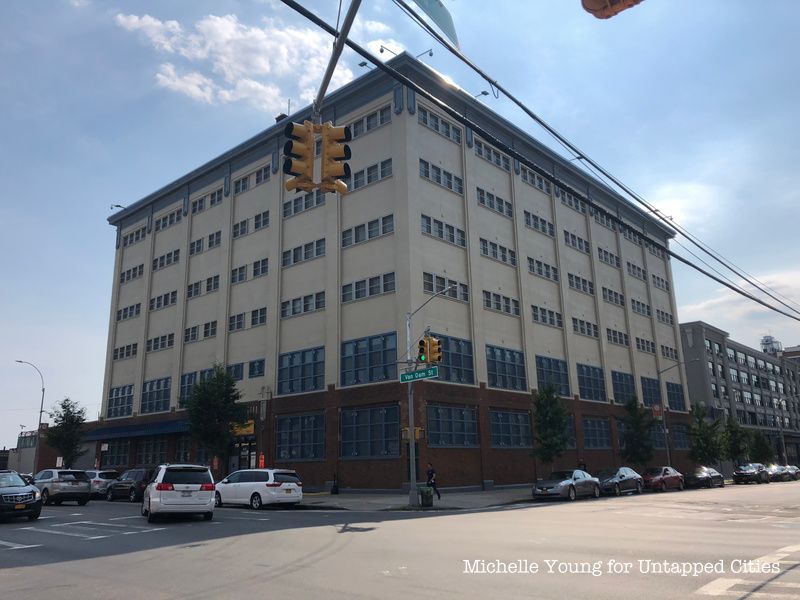
This correctional facility on Van Dam Street, not too far from the Queensboro bridge is a minimum security state prison.
10. Elmhurst Hospital Prison Ward (EHPW) 79-01 Broadway
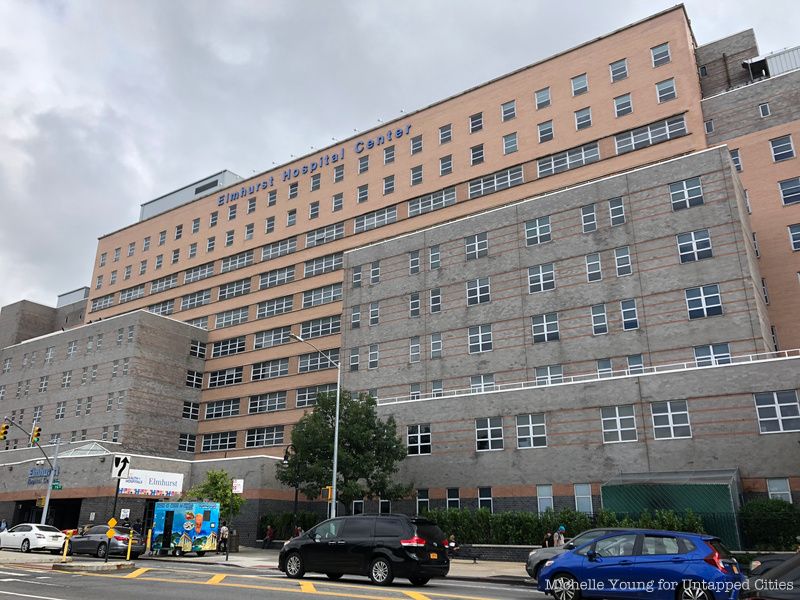
This city prison ward is located inside Elmhurst Hospital and houses females requiring acute psychiatric care.
Bronx
12. Fulton Correctional Facility 1511 Fulton Avenue
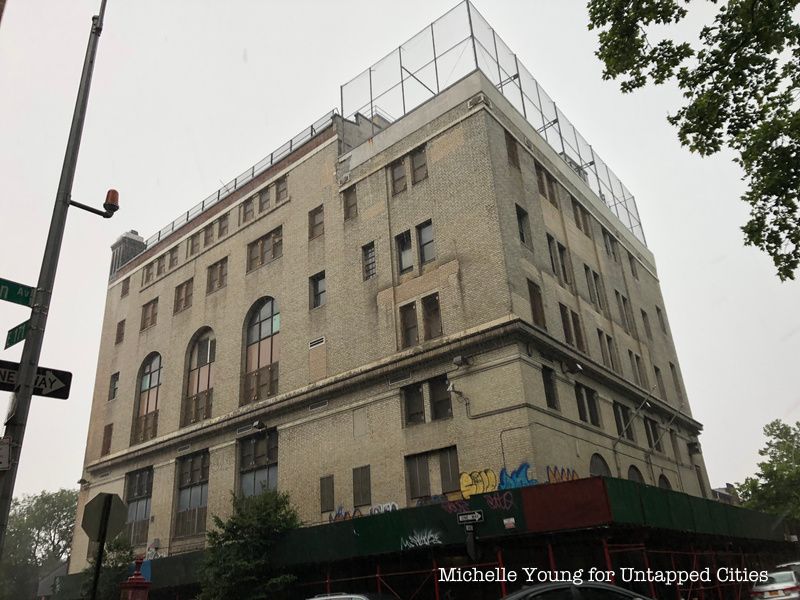
State Prison
13. Vernon C. Bain Center (VCBC) 1 Halleck Street, Hunts Point
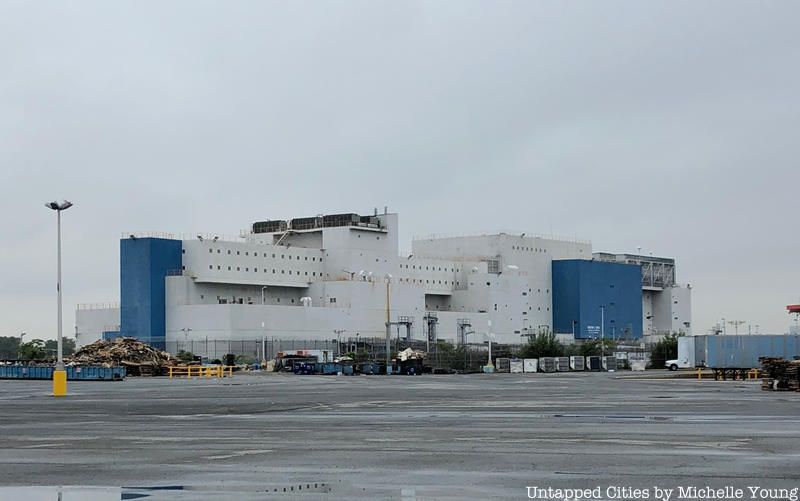
5-story floating city prison barge, houses detained male adults. Read more about this location here.
Get in touch with the author @untappedmich.


